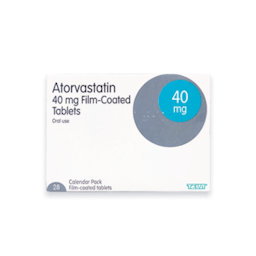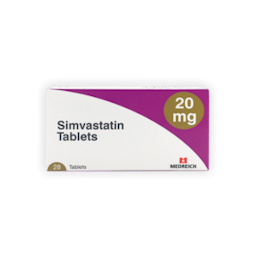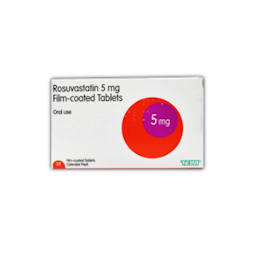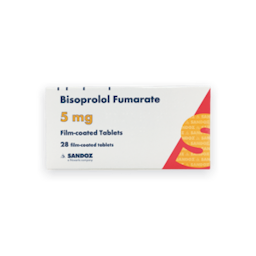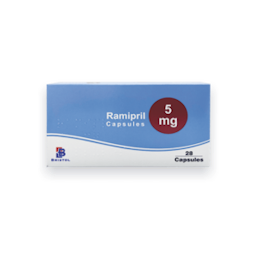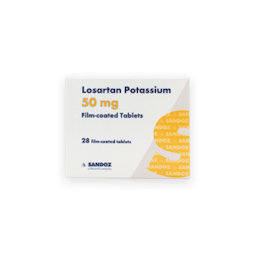Since heart and circulatory diseases are responsible for one-quarter of all UK deaths, taking steps to look after your heart health is important.
Alongside exercising regularly, eating a healthy, balanced diet is one of the best things you can do to lower your risk of developing heart disease. But beyond this, research has found that some foods are particularly beneficial when it comes to heart health.
With this in mind, we’ve put together a list of 10 delicious foods that can help boost heart health, as well as some recipe inspiration. From sweet berries to dark chocolate, these foods are a treat for both your heart and taste buds.
1. Leafy green vegetables

Leafy green vegetables – such as spinach, kale, and collard greens – are sources of many key vitamins, minerals, and natural antioxidants. They’re particularly rich in vitamin K, which has been proven to help protect arteries by promoting healthy blood clotting.
Leafy greens are also high in dietary nitrates, which can reduce blood pressure, decrease arterial stiffness, and improve the function of cells lining the blood vessels. These factors all play a role in heart disease. In fact, this review of eight studies found that eating more leafy green vegetables could reduce the risk of heart disease by up to 16%.
Some people think that leafy green vegetables are boring and bland, but they can be delicious. For inspiration, check out these 22 ways to cook with leafy greens from Delicious or these leafy greens recipes from Food & Wine.
Alternatively, why not try sneaking leafy greens into a smoothie? We have some advice on smoothie-making in our article here.
Get high cholesterol prescriptions from Rest Less Online Doctor
Skip long waits for a doctor’s appointment. With Rest Less Online Doctor, you can access a range of high cholesterol treatments. Order online and you could receive your medication the next day.
2. Whole grains

Whole grains are so called because they include all three nutrient-rich parts of the grain – endosperm, bran, and germ. Common types of whole grains include brown rice, whole wheat, oats, rye, buckwheat, barley, and quinoa.
Unlike refined grains, whole grains are much higher in fibre, which can help to reduce levels of ‘bad’ LDL cholesterol and lower the risk of heart disease.
Numerous studies have shown that introducing more whole grains into your diet can boost heart health. For example, this analysis found that eating three servings of whole grains per day was associated with a 22% lowered risk of heart disease.
Equally, eating no less than three servings of whole grains each day has been shown to lower systolic blood pressure (the force with which your heart pumps blood around your body) enough to reduce the risk of stroke by around 25%.
When buying whole grains, be sure to read product ingredients carefully. For example, words like ‘whole grain’ and ‘whole wheat’ are indicative of a whole-grain product, but this isn’t always the case for phrases like ‘wheat flour’ or ‘multigrain’.
If you’re looking to start eating more whole grains, why not check out these 9 healthy whole grains to add to your diet?
3. Berries

Not only are blueberries, blackberries, strawberries, and raspberries delicious and low in calories, but they’re also jam-packed with vital nutrients that are central to heart health.
Berries are full of antioxidants, including anthocyanins, which protect against inflammation and stress – two known contributors to the development of heart disease.
Research has found that eating berries can lower the impact of various heart disease risk factors. In one study involving 27 adults with metabolic syndrome (a combination of diabetes, high blood pressure, and obesity), drinking blended freeze-dried strawberries for eight weeks decreased ‘bad’ LDL cholesterol by 11%.
Berries make perfect snacks, low-calorie desserts, or breakfast toppings. For inspiration, why not have a go at making one of these 35 healthy berry recipes from Taste of Home?
Order repeat prescriptions online
Skip long waits for a doctor’s appointment. With Rest Less Online Doctor, you can access a range of high blood pressure treatments. Order online and you could receive your medication the next day.
Rest Less Online Doctor powered by evaro. Find out more.
4. Walnuts and almonds

Walnuts and almonds are a great source of fibre and vitamins and minerals that are important for heart health.
Both have been proven to have a positive impact on cholesterol levels. This medical review found that incorporating a few servings of walnuts into your diet could reduce ‘bad’ LDL cholesterol by around 16%. Eating almonds has also been shown to increase levels of ‘good’ HDL cholesterol, which can help to reduce plaque buildup in the arteries.
Levels of oxidative stress (an imbalance between oxygen-containing molecules and antioxidants in the body which can damage cells) and inflammation were also reduced by eating almonds and walnuts.
Why not try some of these healthy almond recipes from BBC Good Food or these healthy walnut recipes from Eating Well, which include smoothies, pancakes, pesto pastas, and walnut breadcrumb dishes?
Note: While almonds and walnuts are highly nutritious, they’re also high in calories, so it’s important to eat them in moderation.
5. Dark chocolate

Luckily, you don’t have to give up chocolate altogether to look after your heart. In fact, dark chocolate is full of antioxidants like flavonoids, which are important for keeping our hearts in good shape.
Various studies have identified a link between eating dark chocolate and a lower risk of heart disease. For example, this study found that people who ate dark chocolate at least five times per week had a 57% lower risk of developing coronary heart disease than non-chocolate eaters.
Another study showed that eating dark chocolate at least twice per week was linked with a 32% lower risk of accumulating calcified plaque in the arteries.
Of course, this is entirely dependent on the type of chocolate and the amount that you eat. Chocolate can be high in sugar and calories, so to reap the benefits, it’s best to eat it in moderation and choose high-quality dark chocolate with at least 70% cocoa.
For inspiration, you may like these these 5 healthy ways to eat more chocolate from Time or these 21 healthier ways to eat chocolate from BuzzFeed.
6. Fatty fish and fish oil

Fatty fish like salmon, tuna, sardines, and mackerel are high in omega-3 fatty acids, which have been studied extensively for their benefits on heart health.
One study found that eating salmon three times a week for eight weeks led to a significant decrease in diastolic blood pressure (the pressure in your arteries when your heart rests between beats).
Other research found that for every 100g reduction in fish eaten per week, there was a 19% increased likelihood of developing one additional risk factor for heart disease – such as diabetes or high blood pressure.
The good news is that even if you don’t enjoy eating seafood, you can still get your daily dose of omega-3 fatty acids through fish oil supplements. These have been shown to reduce blood triglycerides (the main form of fat stored in the body), improve arterial function, and lower blood pressure.
However, as always, you should speak to your GP before adding any new supplements to your diet.
You can learn more about these benefits in our article: Omega-3 – What is it and why do we need it? And to get started in the kitchen, why not try some of these recipes full of omega-3 fatty acids from Bon Appétit?
7. Seeds

Chia seeds, flaxseeds, and hemp seeds are all good sources of heart health-boosting nutrients, including fibre and omega-3 fatty acids.
Multiple studies have shown that introducing these seeds to your diet can improve various risk factors for heart disease – such as inflammation, cholesterol, blood pressure, and triglycerides levels.
Hemp seeds, for example, contain high amounts of arginine, which is an amino acid linked with reduced levels of inflammation. In addition, this study found that eating bread made with flaxseed reduced total cholesterol by 7% and ‘bad’ LDL cholesterol by 9%.
You can use the buttons below to find out more about the benefits of eating seeds.
8. Garlic

Garlic has been used as a natural remedy to treat various ailments for centuries. And, in recent years, scientific research has confirmed its benefits for heart health.
This is largely down to the presence of allicin, a natural compound that is understood to have various therapeutic benefits. One study showed that taking garlic extract for 24 weeks was just as effective as common prescription drug medicine at reducing blood pressure.
Another review found that garlic was effective at reducing total and ‘bad’ LDL cholesterol; while other studies have shown that garlic extract can prevent platelet build-up and potentially reduce the risk of blood clots and stroke.
Garlic is often the magic ingredient that gives our meals some extra flavour. For maximum taste and health benefits, it’s worth crushing the garlic and letting it sit for a few minutes before cooking, as this allows the all-important allicin to form.
To help you get started, why not read Chatelaine’s dos and don’ts of cooking with garlic? Or you could try your hand at one of these 32 recipes for garlic lovers from Taste of Home.
9. Edamame

Edamame are immature soybeans. They make a delicious and colourful addition to many meals and are often found in Asian dishes. Just like other soy products, edamame are rich in soy isoflavones – a type of flavonoid (antioxidant) that can help to lower cholesterol levels.
This review found that soy isoflavones significantly lowered total cholesterol levels; while another analysis found that consuming around 25g of soya protein per day decreased ‘bad’ LDL cholesterol by an average of 6%.
Research suggests that decreasing your total cholesterol levels by just 10% could lower the risk of developing fatal coronary heart disease by 15%.
You could have a go at making this sesame, edamame, and chicken noodle salad from BBC Good Food – or perhaps a grilled tofu version if you follow a plant-based diet. Alternatively, browse these 17 edamame recipes from Self.
10. Olive oil

Olive oil is a staple part of the Mediterranean diet, and its benefits for heart health are well documented. Olive oil is full of antioxidants, which can reduce inflammation and lower the risk of heart disease.
It’s also high in monounsaturated fatty acids, which research has linked with improved heart health. This study of over 7,200 adults with a high risk of heart disease found that those who included olive oil in their diet lowered their risk by around 35%. Olive oil has also been found to lower diastolic blood pressure.
To take advantage of these benefits, why not try lightly drizzling olive oil over some of your meals? Or you might be inspired by All Recipes’ 6 smart ways to use olive oil.
Final thoughts…
Heart and circulatory diseases cause more than 170,000 UK deaths a year – the equivalent of one death every three minutes – so the importance of looking after our heart health can’t be underestimated.
Eating a healthy, balanced diet plays a major role in this, and incorporating foods known for their heart-boosting qualities is a worthwhile step to take. Who knows, you might even find a new favourite recipe or unearth a passion for cooking in the process.
For more guidance on looking after your heart health, check out our articles: 11 healthy heart tips and 5 tips to help lower cholesterol.
What things do you do to look after your heart health? Have you tried any new healthy recipes recently? We’d be interested to hear from you in the comments below.
